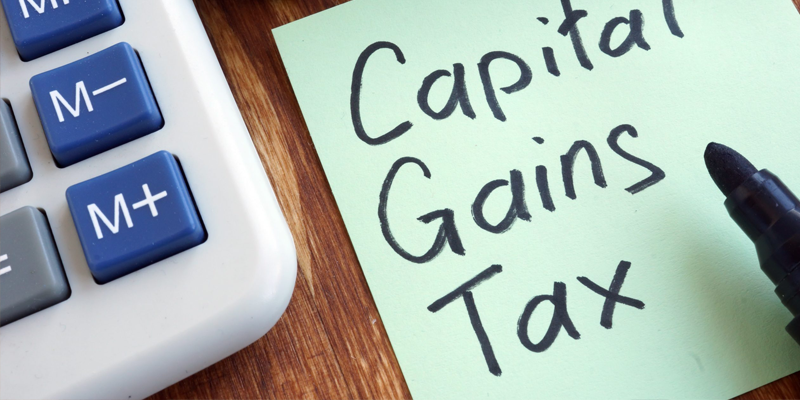Table of Contents
One of the most important aspects of a 1031 exchange is understanding when to use a forward exchange. It can be challenging to interpret exactly when this type of exchange is necessary and the benefits of choosing one over other options. Many taxpayers are unsure of the criteria for a 1031 forward exchange and when it would be best to use this type of exchange instead of a delayed or reverse exchange.
The following article provides an overview of when a 1031 forward exchange should be used as well as a fictitious scenario that illustrates when this type of exchange would be advantageous.
What is a 1031 Forward Exchange?

A 1031 forward exchange is appropriate when the property being sold is not considered “like-kind” to the replacement property. This means that the properties are not similar in nature, character, or use.
For example, if you are selling an office building and plan to purchase a retail store, the two properties are not considered like-kind since they are used for different purposes. This is also the case if you are selling a single-family home and plan to purchase a multi-unit building.
In order to complete a 1031 forward exchange, the replacement property must be identified and contractually agreed upon before the sale of the relinquished property is completed. Additionally, the proceeds from the sale of the relinquished property must be used to purchase the replacement property.
When to Use a 1031 Forward Exchange

There are several factors that taxpayers should consider when determining whether or not to use a 1031 forward exchange. Some of these include:
- The value of the relinquished property in relation to the replacement property
- The amount of time remaining until the replacement property is due
- The taxes and other expenses associated with the relinquished and replacement properties
- The ease of completing the exchange
In general, a 1031 forward exchange should be used when the value of the relinquished property is significantly higher than the replacement property. This is because a 1031 forward exchange allows taxpayers to defer capital gains taxes on the sale of the property.
It is important to note that a 1031 forward exchange must be completed within a specific time frame, which is typically 180 days. If the replacement property isn’t purchased within this time frame, the transaction will be considered taxable.
Example: John sells his business for $1 million and plans to use the proceeds to purchase a new home. However, since he only has 120 days until he needs to close on the replacement property, he opts for a 1031 forward exchange. This allows him to extend the time frame by 60 days.
Scenario: Let’s say you are interested in buying a new home but have not yet sold your old one. In this case, you could use a 1031 forward exchange to purchase the new home before selling your old one. This would allow you to avoid capital gains taxes on the sale of your old home.
The Benefits of a 1031 Forward Exchange

There are several benefits of using a 1031 forward exchange, including:
- Deferring capital gains taxes on the sale of the relinquished property
- Not having to identify or qualify for a replacement property
- Being able to purchase the replacement property without using personal funds
Why Would Someone Want to do a 1031 Exchange?

There are a few reasons why someone might want to do a 1031 exchange, including:
- To defer capital gains taxes
- To avoid having to identify or qualify for a replacement property
- To purchase the replacement property without using personal funds
All of these reasons boil down to one thing: tax savings. By using a 1031 forward exchange, taxpayers can save money on their taxes. This is especially beneficial if they plan to sell a high-value property.
Why Wouldn’t You Want to Use a 1031 Exchange?

There are a few reasons why someone might not want to use a 1031 exchange, including:
- The replacement property isn’t considered like-kind to the relinquished property
- The replacement property isn’t available or can’t be purchased within the allotted time frame
- There are costs associated with using a 1031 exchange, such as legal fees and taxes
When Is It Better Not To Use a 1031 Exchange?

There are a few instances when it is better not to use a 1031 exchange, including:
- -When the value of the replacement property is significantly lower than the relinquished property
- -When the replacement property doesn’t meet the taxpayer’s needs
- -When the taxpayer doesn’t have enough time to complete the exchange
- -When there are costs associated with using a 1031 exchange, such as legal fees and taxes
If any of these situations apply, it might be better not to use a 1031 exchange. However, taxpayers should always consult with a tax professional to make sure.
A 1031 forward exchange is an IRS-approved way to defer capital gains taxes on the sale of a property. In a 1031 forward exchange, the taxpayer sells their relinquished property and uses the proceeds to purchase the replacement property. The replacement property must meet specific requirements in order to qualify for the exchange.
Are There Other 1031 Tax Issues to Know About?

There are a few other 1031 tax issues to be aware of, including:
- The IRS has a set of rules that must be followed in order for the exchange to be considered valid
- The taxpayer must identify the replacement property within 45 days of selling the relinquished property
- The replacement property must be received within 180 days of selling the relinquished property
- There are costs associated with using a 1031 exchange, such as legal fees and taxes
It is important to consult with a tax professional to make sure you are following all of the appropriate rules. Taxpayers who don’t follow the rules could face penalties from the IRS.
A 1031 forward exchange can be a great way to defer capital gains taxes on the sale of a property. However, taxpayers should always consult with a tax professional to make sure they are following all of the appropriate rules. There are a few other 1031 tax issues to be aware of, so it is important to know what you’re getting into before using this type of exchange. Reach out to our team of experts if you have any questions about 1031 exchanges – we’re here to help!

